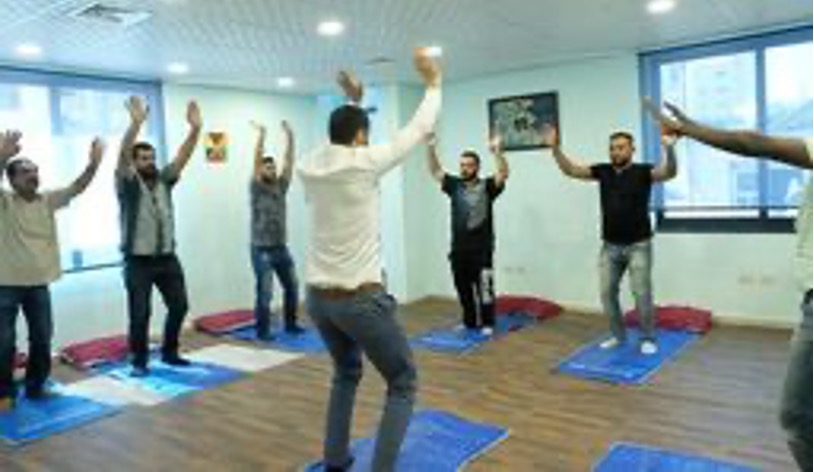The Peer MIST Project and Physical Movement for Wellbeing
13 May 2024
The theme for this year’s Mental Health Awareness week is Movement. The aim to highlight the important role that movement of any kind for promoting good mental health and wellbeing. We know that physical movement can help improve mental health because of the biopsychosocial model. All that means is that our body, mind, and environment can impact each other and influences our health and wellbeing. Most people are familiar with the experience of feeling stressed and having tight shoulders. This is the biopsychosocial model in action.
Research shows that up to 50% of sanctuary, those who are refugees and asylum seekers, have experienced trauma and have poor mental health because of their experiences. Accessing healthcare for their physical and mental health is challenging because of barriers around culture, language, mental health stigma, and even a physical limitation or pain that prevents someone from sitting for long period. The great thing about using movement for mental health, is that can address those barriers around stigma, language, or physical limitations. For Sanctuary seekers taking part in physical activity can be the first step on a journey for developing good mental health and wellbeing.

The Peer MIST project is hoping to use the power of movement to help those seeking sanctuary in the UK who have experienced trauma to develop the skills to manage their own physical and mental health and improve their wellbeing. The project aims to adapt an existing intervention that is delivered by physiotherapists, so that it can be delivered in partnership with sanctuary seekers themselves. To do this we are going to use co-production methodology. We are going to work together with sanctuary seekers, NHS staff, and charity staff to achieve the project’s aims. Together we will explore how to embed the intervention within the current healthcare system, develop the intervention material and support system, and make sure that the intervention is acceptable and accessible to refugees and asylum seekers. We hope that this project can improve the lives of a group of people who are significantly underserved in healthcare.
For more information about the project email PeerMIST@Cardiff.ac.uk.
- June 2024
- May 2024
- April 2024
- March 2024
- December 2023
- November 2023
- September 2023
- July 2023
- June 2023
- April 2023
- March 2023
- February 2023
- December 2022
- November 2022
- October 2022
- September 2022
- August 2022
- July 2022
- June 2022
- May 2022
- April 2022
- March 2022
- February 2022
- January 2022
- November 2021
- September 2021
- July 2021
- June 2021
- May 2021
- March 2021
- February 2021
- December 2020
- November 2020
- September 2020
- August 2020
- July 2020
- January 2020
- December 2019
- October 2019
- September 2019
- July 2019
- June 2019
- May 2019
- April 2019
- February 2019
- December 2018
- November 2018
- October 2018
- September 2018
- August 2018
- July 2018
- June 2018
- May 2018
- April 2018
- March 2018
- December 2017
- October 2017
- August 2017
- July 2017
- June 2017
- May 2017
- April 2017
- March 2017
- February 2017
- January 2017
- December 2016
- October 2016
- August 2016
- June 2016
- April 2016
- March 2016
- February 2016